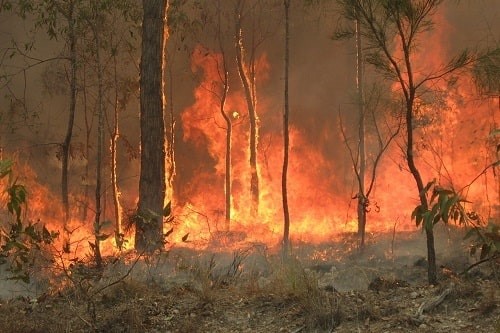2020 has started with some big risks high up in the news. From fires in Australia as a harbinger of the climate’s power, to violence in the Middle East and, closer to home, the risks involved in leaving the EU, it is these large risks that tend to dominate our attention.
Opinion
Responding to a risky world
However, if a business is like a body, we should also remember that much of what goes on is also hard to see, with multiple processes that we are barely aware of. Anyone who has ever tried to bring to mind every muscle-action that allows us to walk will understand why this is necessary. Conscious awareness of such complexity is generally overwhelming and, inevitably, can land you flat on your back.
 Bush fires in Australia have hit home the climate's power
Bush fires in Australia have hit home the climate's power
So, like a body, an organisation has to operate through a certain set of assumed procedures that don’t bear or require much reflection or thought. Or another way of saying this: stupidity has a value.
However, unlike a body – or individual – an organisation creates much bigger risks that can affect many people, even whole communities or beyond. People’s futures, their livelihood and identity, opportunities and health are bound up with the success of an organisation. That is why conscious awareness of the decisions and actions being taken at the micro-level is necessary to control any of the associated risks.
I am certain that most people want to behave ethically, but somewhere along the line what started as a top-level commitment can drift and become something very different. A vision and set of public statements about corporate responsibility doesn’t mean this is being reflected at a ground floor level. We can see this across a host of business activities, whether it is banks that sold payment protection insurance, originally for practical reasons, but ended up exploiting customers.
Or cost cutting to maintain profits that start as attempts to create efficiency savings and ended up short-changing people. Organisations might have to rely on a set of assumed procedures; they also need to make sure these don’t slide into unethical behaviour.
The same goes for the management of work-related risks. In one direction this can be seen when, for example, certain requirements to wear protective equipment while doing low risk jobs are dropped. This may, in some cases, be sensible. However, if it becomes the norm, this can generate a slide in standards and put workers at risk. In the other direction, over-application of health and safety rules can end up discrediting the very value of good health and safety. Many of our members keep on top of these calculations of under and over-application by putting health and safety on their board’s agenda.
However, for the ‘head’ of the organisation to ensure that standards don’t slide, all parts of the organisation must be made visible and be present in these deliberations. Blind spots surrounding sets of procedures always have the potential to lead to a slide in standards.
That is why we, and you, place great value in the role that workers play in partnership with managers.
It is through their involvement, thoughts and voices, that a constant stream of intelligence and knowledge-rich information can percolate throughout the organisation and build a strong health and safety culture.
An organisation is made of many bodies, and its success – ethically and financially – will depend on the respect it gives to its many voices and ensure, in the end, that it speaks with one voice.
Mike Robinson is CEO of the British Safety Council
OPINION

The air we breathe is all our business
By Nicky O’Malley, director of corporate partnerships, Global Action Plan on 01 June 2023
Businesses have a vital role to play in improving air quality – and the UK’s Clean Air Day on 15 June is a great opportunity for companies to begin or renew their efforts in this area.

All jobs greener: why we need workforce transformation for a sustainable future
By Martin Baxter, deputy CEO, IEMA (Institute of Environmental Management & Assessment) on 01 June 2022
The shift to a green economy will create green jobs within new and emerging sectors, while those working in existing sectors will have to gain the requisite green skills to take advantage of the business value-creation opportunities that come from embedding sustainability across the whole organisation.

Preventing chemical pollution: how the UK is falling behind Europe
By Ruth Jones MP for Newport West & Shadow Minister for Agri-Innovation and Climate Adaptation on 01 June 2023


